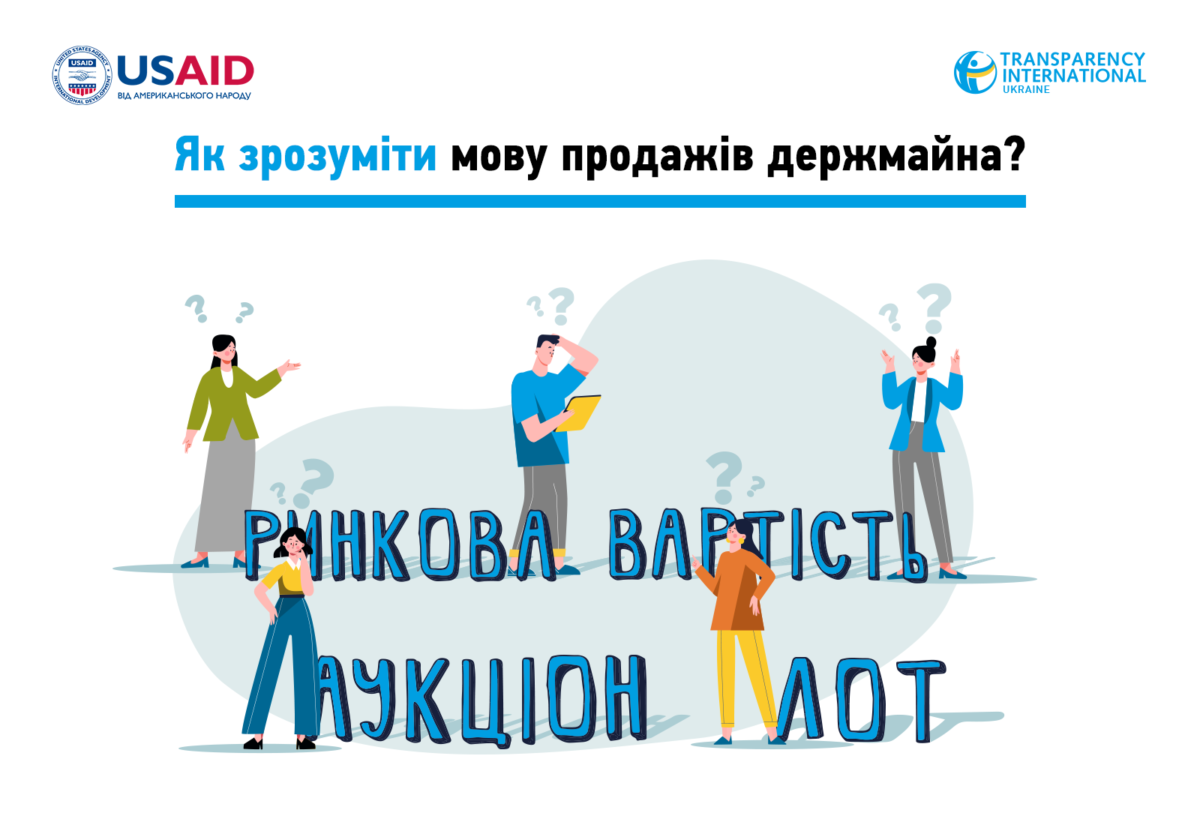

On November 12, the abandoned and unprofitable Electronmash plant was sold for UAH 970 mln. Due to high competition, the starting price increased by 14.5 times.
This is a good example of successful small-scale privatization, which gives new life to old public property and brings income to the budget — both immediate and, we hope, systemic (but later).
We decided to remind you what is small-scale privatization, and why love it.
Up to 2018, purchasing or renting state property in our country was historically considered the privilege of the elite — oligarchs, senior directors and people close to power.
However, in 2018, a turning point came — the Rada adopted the new Law “On Privatization of State and Municipal Property” which introduced transparent rules of the game. From now on, anyone can become the owner of public property.
Privatization is the alienation of public property from the state or society in favor of private owners. In Ukraine, privatization takes place on a competitive basis through auctions.
The current legislation defines two types of privatization with a clear set of procedures: large-scale and small-scale.
Not all property can be put up for sale. For example, state-owned enterprises and objects that are necessary for the state to perform its main functions, to ensure the state’s defense capability, objects of property rights of the Ukrainian people, and property that forms the material basis of Ukraine’s sovereignty cannot be put up for sale.
In particular, these are mineral resources, natural resources, property of law enforcement, tax, and customs authorities that are necessary for these bodies to perform the tasks established by law. This also includes the property of healthcare institutions, emergency medical care systems, military property, archaeological sites, museum property, and so on.
Before selling property, the state or society decides which of the entire property will be privatized and which will be leased. First of all, it is necessary to approve the list of privatization objects.
Enterprises, structures, and blocks of shares in companies owned by the state or local authorities are subject to small-scale privatization. Their cost does not exceed UAH 250 mln. Since August 2018, small-scale privatization has been conducted through electronic auctions on Prozorro.Sale.
One of the largest e-auctions in the history of privatization in Ukraine is the sale of the Dnipro hotel in the capital. The starting price at the auction was UAH 80.92 mln, and the winner of the auction paid UAH 1.1 bln.
What is ProZorro.Sale?
Prozorro.Sale is an electronic trading system created on the initiative of the Ministry of Economy, Transparency International Ukraine, the Individual Deposit Guarantee Fund, the National Bank, and Ukrainian electronic platforms. It is built according to the values and principles of the Prozorro family.
Thanks to this platform, it was possible to open “hard-to-reach” data, transfer all procedures to “online,” and show the decision-making process itself.
The system, which Ukraine has fully transferred to the state, sells and leases state and municipal assets, land, property of insolvent banks, licenses for the extraction of mineral resources, cars of Ukrzaliznytsia, property of private companies, and so on. It is on Prozorro.Sale that small-scale privatization takes place.
Prozorro.Sale — a two-level system. It combines information about all lots offered for sale (first level) in a central database. The CDB does not interact with participants, but is only responsible for the smooth operation of the system itself. The organizers and participants “communicate” with the system through accredited electronic platforms that are connected to the system (second level). The task of these platforms is to provide quality advisory support to both buyers and sellers.
Transparent rules at open online auctions based on the principle of “everyone knows everything” are an important component of the sale of state and municipal property. Thanks to this, competition at auctions increases, and therefore state and local authorities can lease or sell property at a price many times higher than the starting price. The interest of citizens in this is obvious: the more expensive the property is sold, the more funds will go to the budget, the money from which will be used for the development of the state or society.
Learn more about how to purchase public property in our educational material.






